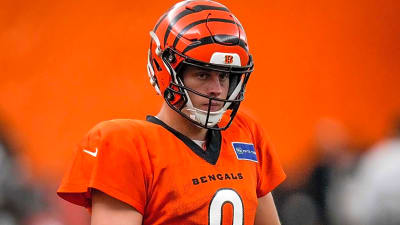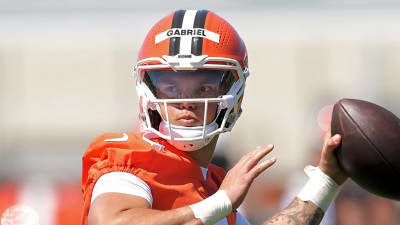
Is greed actually good? The double-edged sword of private equity in the NFL
NFL owners ratified a change to team ownership regulations Tuesday, allowing up to 10 percent of a club to be purchased by a limited number of pre-approved private equity firms. ESPN's Michael Rothstein was first to report the story.
The NFL was the final American sports operation to not allow private equity involvement, but now it joins the ranks of the NHL, NBA, MLB and most global soccer leagues in permitting entity investment.
That decision has it's benefits and detriments, broken down here:
The benefits:
NFL teams now have the opportunity to allow private investment firms to buy a portion of the club, injecting a cash flow that provides new-found financial flexibility for owners.
For example, a team looking to make stadium renovations would be less beholden to tax payers and local authorities when searching for funding. It could now turn to its new limited partners for an assist.
Limited partners have little to no decision-making power in how a franchise is run. So, fans won't be seeing any of the investment firms influencing coaching hires or overseeing branding direction.
What's at stake:
Team owners are not required to bring in private equity under this regulation revision. Franchises like the New York Giants or Pittsburgh Steelers have been traditionally family-fun businesses since their inceptions.
According to CNBC, firms on the league-approved list include Ares Management, Sixth Street Partners, Arctos Partners, plus a group of investors including Dynasty Equity, Blackstone, Carlyle Group, CVC Capital Partners and Ludis, a data platform founded by Hall of Fame running back Curtis Martin.
Any potential deals would still need to be approved by a vote of league owners, but that hasn't stopped previous shady actors from slipping through in other leagues with similar practices.
For example, Washington Capitals owner Ted Leonsis accepted a bid from the Qatar Investment Authority last year that bought a five percent stake in Monumental Sports and Entertainment, the majority stakeholder in the NHL club.
That cash influx gave Leonsis a fungible cushion when reentering negotiations over arena renovations with the city government of Washington, D.C. But it also tied Leonsis to a growing movement of "sportswashing" by Middle Eastern countries attempting to cover up human atrocities within their borders by getting involved in popular major sports operations.
While foreign wealth funds are not currently permitted to invest in NFL teams, inviting private equity — albeit all-American at the moment — opens the door to foreign expansion and potential sportswashing in America's biggest sport.
The NFL's decision also provides cover for college conferences to follow suit, a move Big 12 commissioner Brett Yormark has been exploring since June.
One can only think of the fictional Gordon Gecko's speech in the 1987 film "Wall Street" when trying to encapsulate the mindset of the NFL in its approach to this decision:
"Greed, for lack of a better word, is good. Greed is right, greed works. Greed clarifies, cuts through and captures the essence of the evolutionary spirit. Greed in all of its forms. Greed for life, money, love, knowledge, has marked the upward surge of mankind."
But for how long will greed actually provide an upward surge and evolutionary spirit for the NFL before the league's bitten off more than it can chew?
More must-reads:
- Jacoby Brissett sends clear message about Patriots’ QB competition
- Manti Te’o shares why he has doubts about 49ers entering season
- The 'Running backs taken in the first round' quiz
Breaking News
Trending News
Customize Your Newsletter
 +
+
Get the latest news and rumors, customized to your favorite sports and teams. Emailed daily. Always free!








